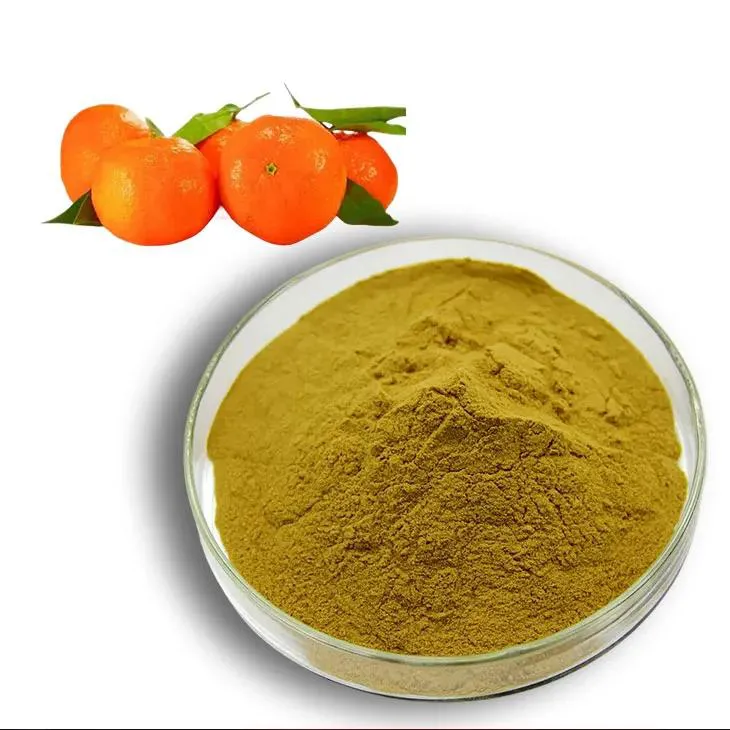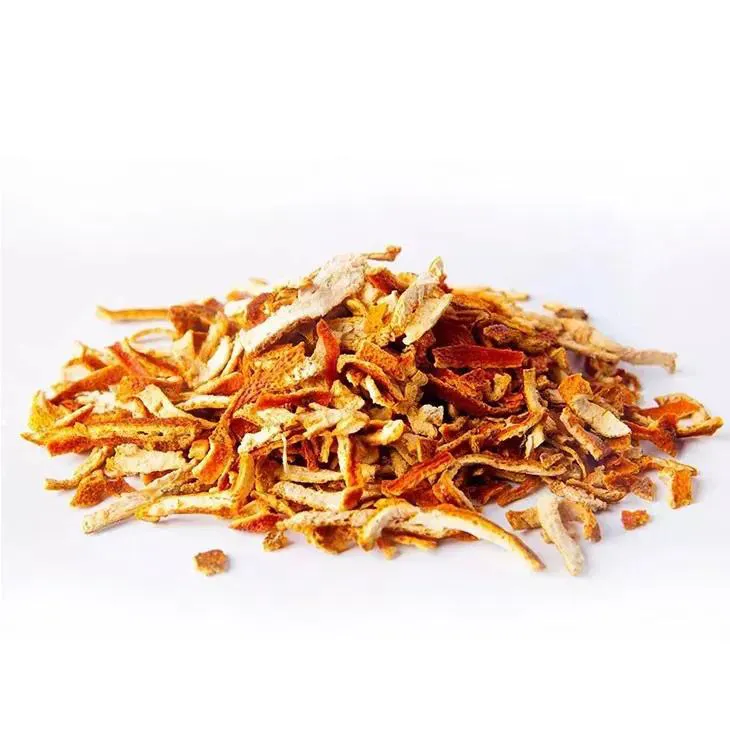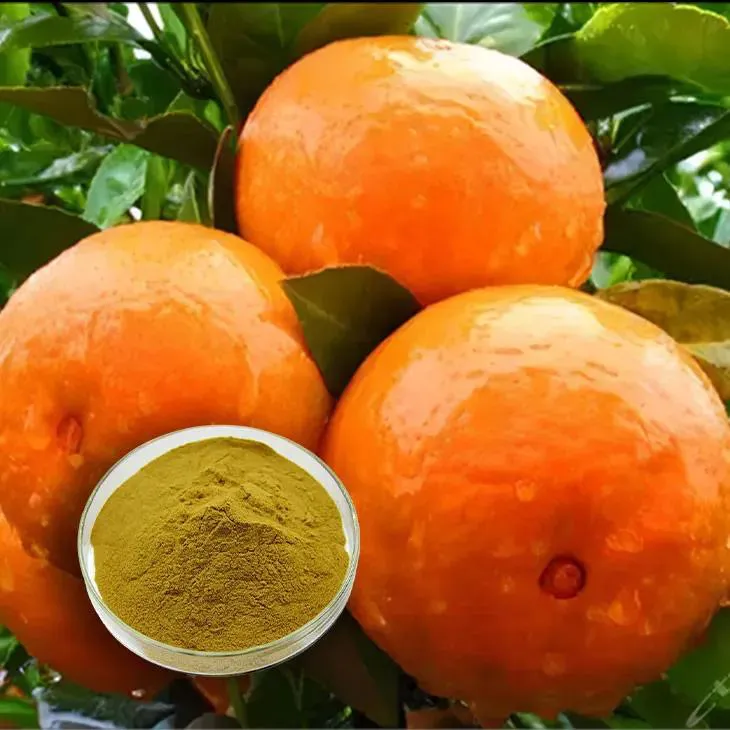- 0086-571-85302990
- sales@greenskybio.com
Powerful Citrus Bioflavonoids: Their Role in Athletic Performance
2024-11-12

Introduction
In the realm of sports nutrition, the search for natural substances that can enhance athletic performance is an ongoing pursuit. Among the emerging areas of interest are Citrus bioflavonoids. These compounds, abundant in citrus fruits such as oranges, lemons, and grapefruits, are beginning to show great potential in the world of sports. Bioflavonoids are a diverse group of polyphenolic compounds that have long been studied for their health - promoting properties. In the context of athletics, their role is becoming more and more significant.

What are Citrus bioflavonoids?
Citrus bioflavonoids are a class of phytochemicals that are naturally present in citrus fruits. Some of the well - known citrus bioflavonoids include Hesperidin, naringin, and rutin. These compounds are responsible for many of the health benefits associated with citrus consumption. They are often found in the peel, pulp, and white pith of citrus fruits. While they have been part of the human diet for centuries, it is only in recent years that their specific role in athletic performance has been explored.

The Anti - Inflammatory Role in Athletic Performance
Post - Exercise Inflammation
Intense exercise, especially activities that involve high - impact movements or resistance training, can lead to inflammation in the body. This is a normal physiological response as the body tries to repair and adapt to the stress placed on it during exercise. However, excessive or prolonged inflammation can impede the recovery process and affect an athlete's ability to perform in subsequent workouts. The inflammatory response involves the activation of immune cells and the release of various cytokines and mediators.
Citrus Bioflavonoids as Anti - Inflammatory Agents
Citrus bioflavonoids have been shown to possess anti - inflammatory properties. They can modulate the body's inflammatory response by interfering with the signaling pathways involved in inflammation. For example, studies have suggested that Hesperidin can reduce the production of pro - inflammatory cytokines. This helps to keep the post - exercise inflammation in check. Athletes who consume citrus bioflavonoids may experience less muscle soreness and fatigue, allowing them to bounce back quicker from strenuous workouts. This quicker recovery time can be a significant advantage, especially for athletes who train frequently or have a tight competition schedule.

Enhancing Mitochondrial Function
The Importance of Mitochondria in Athletic Performance
Mitochondria are often referred to as the "powerhouses" of the cells because they are responsible for generating adenosine triphosphate (ATP), which is the primary source of energy for cellular activities. In the context of athletics, efficient mitochondrial function is crucial for activities that require high - intensity effort. For instance, during sprinting, the muscles need a rapid and large supply of energy. Similarly, in weightlifting, the explosive movements rely on the availability of sufficient energy. Athletes with well - functioning mitochondria can perform at a higher level and for longer durations.
Citrus Bioflavonoids and Mitochondrial Enhancement
Research has indicated that citrus bioflavonoids can enhance the function of mitochondria. They can do this through several mechanisms. One way is by improving the efficiency of oxidative phosphorylation, the process by which mitochondria generate ATP. Bioflavonoids may also protect mitochondria from oxidative stress, which can damage the mitochondrial membranes and impair their function. By enhancing mitochondrial function, citrus bioflavonoids can potentially increase an athlete's energy production capacity, leading to improved athletic performance.
Other Potential Benefits for Athletes
- Immune System Support: Regular exercise can sometimes suppress the immune system, making athletes more susceptible to infections. Citrus bioflavonoids have immune - enhancing properties, which can help athletes maintain a healthy immune system. This is important as a single illness can disrupt an athlete's training and competition schedule.
- Antioxidant Activity: They act as antioxidants, neutralizing free radicals that are produced during exercise. Free radicals can cause oxidative damage to cells, including muscle cells. By scavenging these free radicals, citrus bioflavonoids can help preserve muscle function and reduce the risk of muscle damage.
- Vascular Health: Bioflavonoids can improve vascular function by promoting the dilation of blood vessels. This can enhance blood flow to the muscles during exercise, ensuring that they receive an adequate supply of oxygen and nutrients. Good vascular health is also important for overall cardiovascular function, which is crucial for athletes.
How to Incorporate Citrus Bioflavonoids into an Athlete's Diet
- Fresh Citrus Fruits: The simplest way is to consume fresh citrus fruits. Oranges, lemons, and grapefruits can be eaten as part of a pre - or post - workout snack. For example, an orange can provide a quick source of energy along with a dose of bioflavonoids.
- Citrus Juices: However, it should be noted that when consuming citrus juices, it is advisable to choose freshly squeezed juices without added sugars. Many commercial juices have added sugars and preservatives, which may offset the health benefits of the bioflavonoids.
- Supplements: For athletes who may not be able to consume enough citrus fruits or juices, citrus bioflavonoid supplements are available. However, it is important to choose high - quality supplements from reliable sources and to follow the recommended dosage.
Conclusion
Citrus bioflavonoids are emerging as a promising area of study in the field of sports nutrition. Their anti - inflammatory properties, ability to enhance mitochondrial function, and other potential benefits make them a valuable addition to an athlete's diet. Whether through the consumption of fresh citrus fruits, juices, or supplements, athletes can potentially reap the rewards of these powerful compounds. As research in this area continues to progress, we can expect to gain a more in - depth understanding of how citrus bioflavonoids can be optimized for athletic performance.
FAQ:
What are citrus bioflavonoids?
Citrus bioflavonoids are substances found in citrus fruits such as oranges and lemons. They are becoming more and more recognized in the field of sports nutrition for their various beneficial properties.
How do citrus bioflavonoids help in modulating the body's inflammatory response?
After intense exercise, the body may experience inflammation. Citrus bioflavonoids have the ability to keep this inflammation in check, though the exact mechanisms are still being studied. This helps athletes recover more quickly from tough workouts.
Why is enhancing mitochondrial function important for athletic performance?
Mitochondria are the powerhouses of cells. By enhancing mitochondrial function, the body can produce energy more efficiently. This is extremely crucial for high - intensity activities like sprinting or weightlifting, as these activities demand a large amount of energy.
Can citrus bioflavonoids be used as a replacement for other sports supplements?
At present, citrus bioflavonoids cannot completely replace other sports supplements. While they offer unique benefits such as modulating inflammation and enhancing mitochondrial function, other supplements may provide different necessary nutrients or support for athletes. However, they can be a valuable addition to an athlete's overall supplement regime.
How can athletes incorporate citrus bioflavonoids into their diet?
Athletes can incorporate citrus bioflavonoids into their diet by consuming citrus fruits like oranges, lemons, and grapefruits regularly. They can also consider using citrus - based juices or supplements that contain bioflavonoids, but it is important to consult with a professional before starting any new supplement.
Related literature
- The Role of Bioflavonoids in Athletic Endurance and Recovery"
- "Citrus Bioflavonoids: A New Frontier in Sports Nutrition"
- "Bioflavonoids from Citrus Fruits and Their Impact on Exercise - Induced Inflammation"
- ▶ Hesperidin
- ▶ Citrus Bioflavonoids
- ▶ Plant Extract
- ▶ lycopene
- ▶ Diosmin
- ▶ Grape seed extract
- ▶ Sea buckthorn Juice Powder
- ▶ Fruit Juice Powder
- ▶ Hops Extract
- ▶ Artichoke Extract
- ▶ Mushroom extract
- ▶ Astaxanthin
- ▶ Green Tea Extract
- ▶ Curcumin
- ▶ Horse Chestnut Extract
- ▶ Other Product
- ▶ Boswellia Serrata Extract
- ▶ Resveratrol
- ▶ Marigold Extract
- ▶ Grape Leaf Extract
- ▶ New Product
- ▶ Aminolevulinic acid
- ▶ Cranberry Extract
- ▶ Red Yeast Rice
- ▶ Red Wine Extract
-
Honeysuckle Pollen
2024-11-12
-
Gynostemma pentaphyllum extract
2024-11-12
-
White Willow Bark Extract
2024-11-12
-
Nettle Root Extract
2024-11-12
-
Polygonum Cuspidatum Extract
2024-11-12
-
Lemon Juice Powder
2024-11-12
-
Sophora Flavescens Root Extract
2024-11-12
-
Shikone Extract
2024-11-12
-
Curcumin Extract
2024-11-12
-
Almond Extract Powder
2024-11-12





















